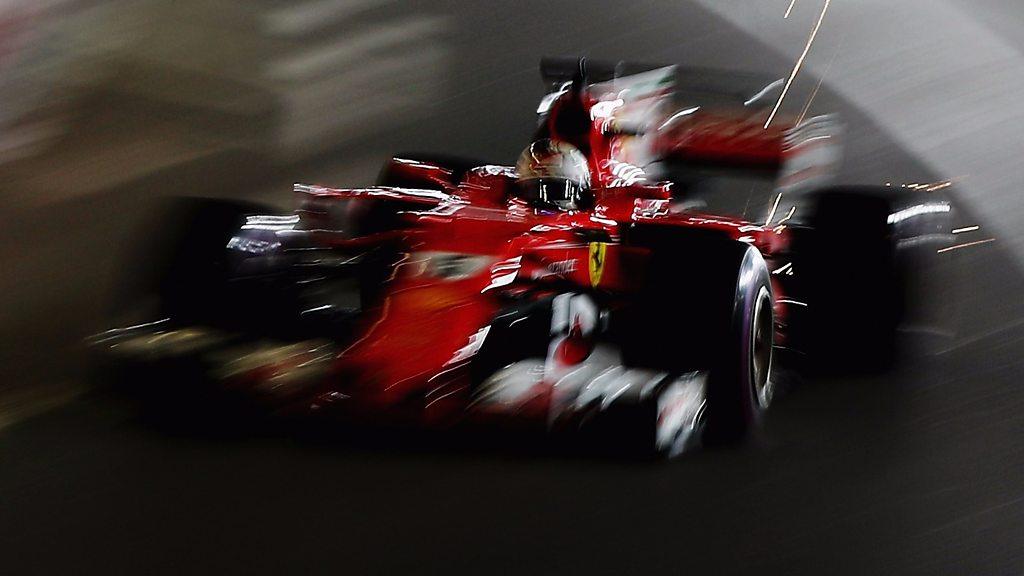Sebastian Vettel told he will get 'very strong' punishment if he reoffends
- Published
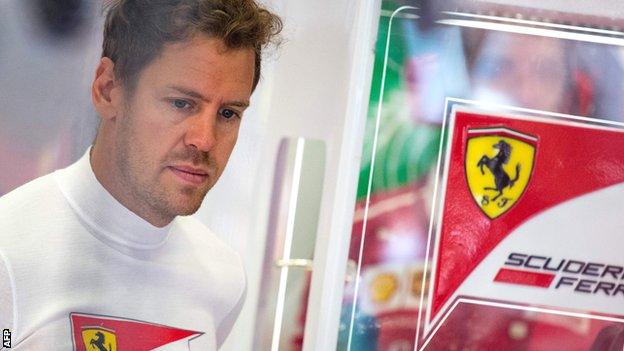
Sebastian Vettel is four-time world champion
Austrian Grand Prix on the BBC |
|---|
Venue: Red Bull Ring Date: 7-9 July |
Coverage: Race on BBC Radio 5 live. Live text commentary, leaderboard and imagery on BBC Sport website and app. |
Sebastian Vettel has been told he faces "very strong" punishment if he commits an offence similar to his collision with Lewis Hamilton in Azerbaijan.
Vettel was given a 10-second stop-and-go penalty in the race in Baku for deliberately driving into Hamilton.
Governing body the FIA decided at a hearing on Monday not to take more action against the Ferrari driver.
"I would have been uncomfortable to go further than what has been done," said FIA president Jean Todt.
"I would be very comfortable to be very strong if it happens again. He knows that."
Todt did not specify what he meant by a "very strong" punishment, but it can only mean a disqualification from at least one race.
Todt, who was talking to BBC Radio 5 live, said: "Clearly I wish that he would have been able to control himself better."
F1: Ferrari's Sebastian Vettel is on 'incredibly thin ice'
Vettel was also put on a warning after last year's Mexican Grand Prix, when he swore over the radio at FIA F1 director Charlie Whiting because was unhappy about a lack of action over the driving of Red Bull's Max Verstappen.
Todt said: "People say he had already a warning after Mexico. This is true, but it was a completely different matter. He lost control and was insulting one of the stewards. It was a different category.
"So on the first category he has no more joker, on the second category he has no more joker."
Vettel has apologised publicly for the incident, and also for falsely accusing Hamilton of brake-testing him.
It was Vettel's belief that had caused him to run into the back of Hamilton, provoking his anger and leading to him then banging wheels with the Mercedes.
Hamilton has said Vettel did not apologise in their first conversation about the incident on the day after the Baku race, but that the following day he did so when they exchanged text messages.
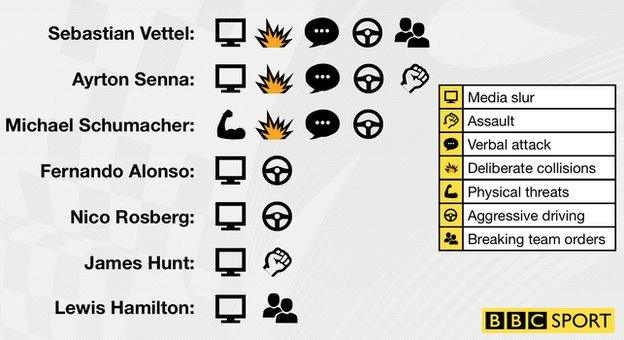
When champions turn bad: who has seen the red mist over the years, and what did they do?
Todt said he called the meeting on Monday to ensure Vettel understood Hamilton had not been responsible for the incident in any way and to acknowledge the German was the one who carried the responsibility for it.
"I felt it was very bad for the sport and very bad for the image of the sport and for the fans, because when you are a champion at this level you must be an example," Todt said.
"I am sure a lot of young people and fans were shocked by this attitude and particularly - even if I said the matter was judged by the stewards - I was not very comfortably with the statements after the race where the team and the driver seemed not to understand what had happened. So I thought in this case I wanted to understand even myself better.
"I was confused - was Hamilton part of it, responsible for some unnecessary action? And I got confirmation that what he did was exactly the same as what he did at the first safety car and he had absolutely no responsibility.
"So I thought it was important to have that said and understood by Sebastian Vettel, which was not what he said (after the race), including also his team.
"I do respect a lot pressure and i can sympathise the emption and we can allow special circumstances in special conditions.
"So he acknowledged he was the only one guilty, that he would not do that any more - which was very important."
Todt said Vettel had also offered to talk to young drivers and give them the benefit "of his good and bad experience".
- Published6 July 2017
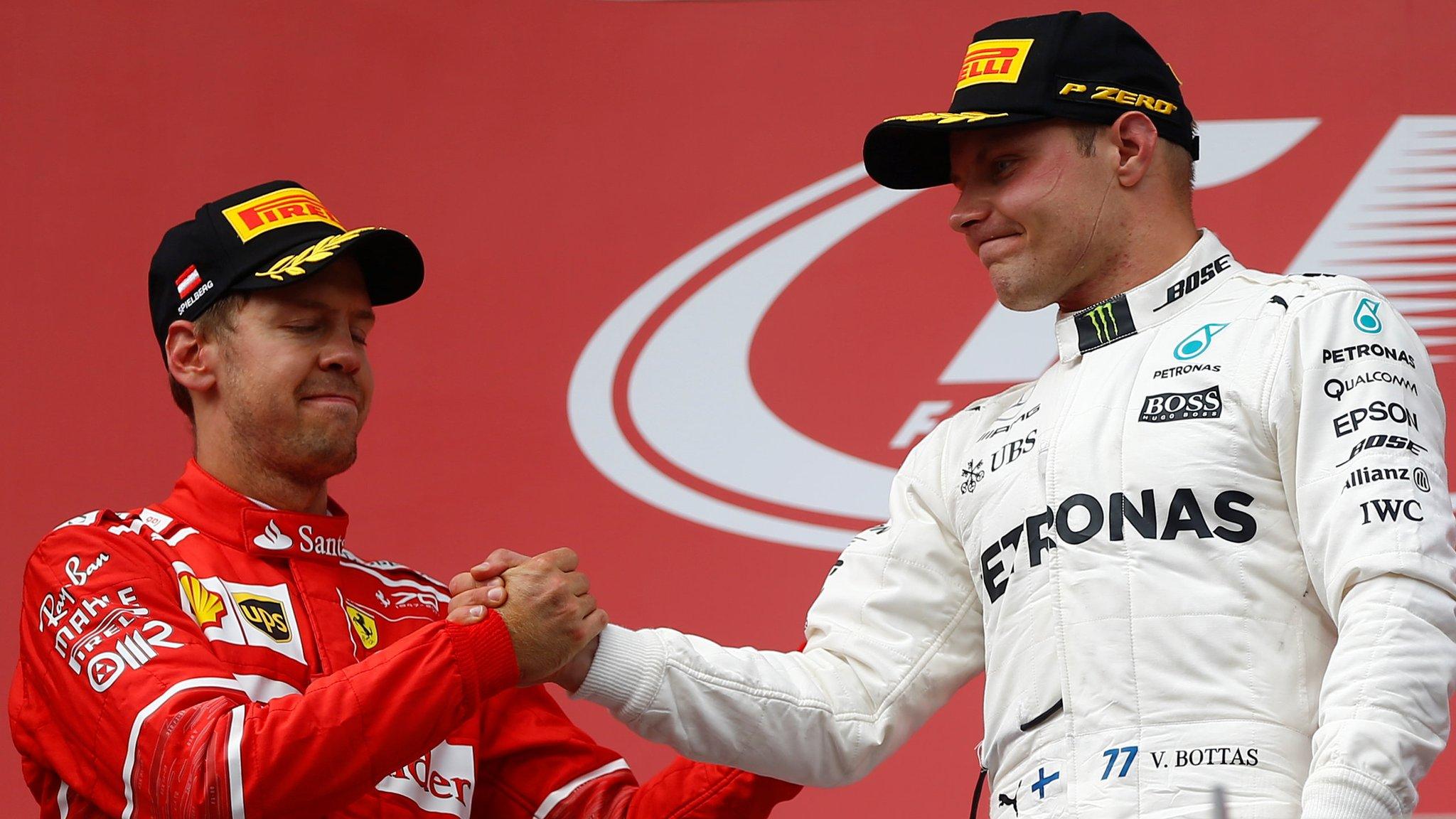
- Published8 July 2017
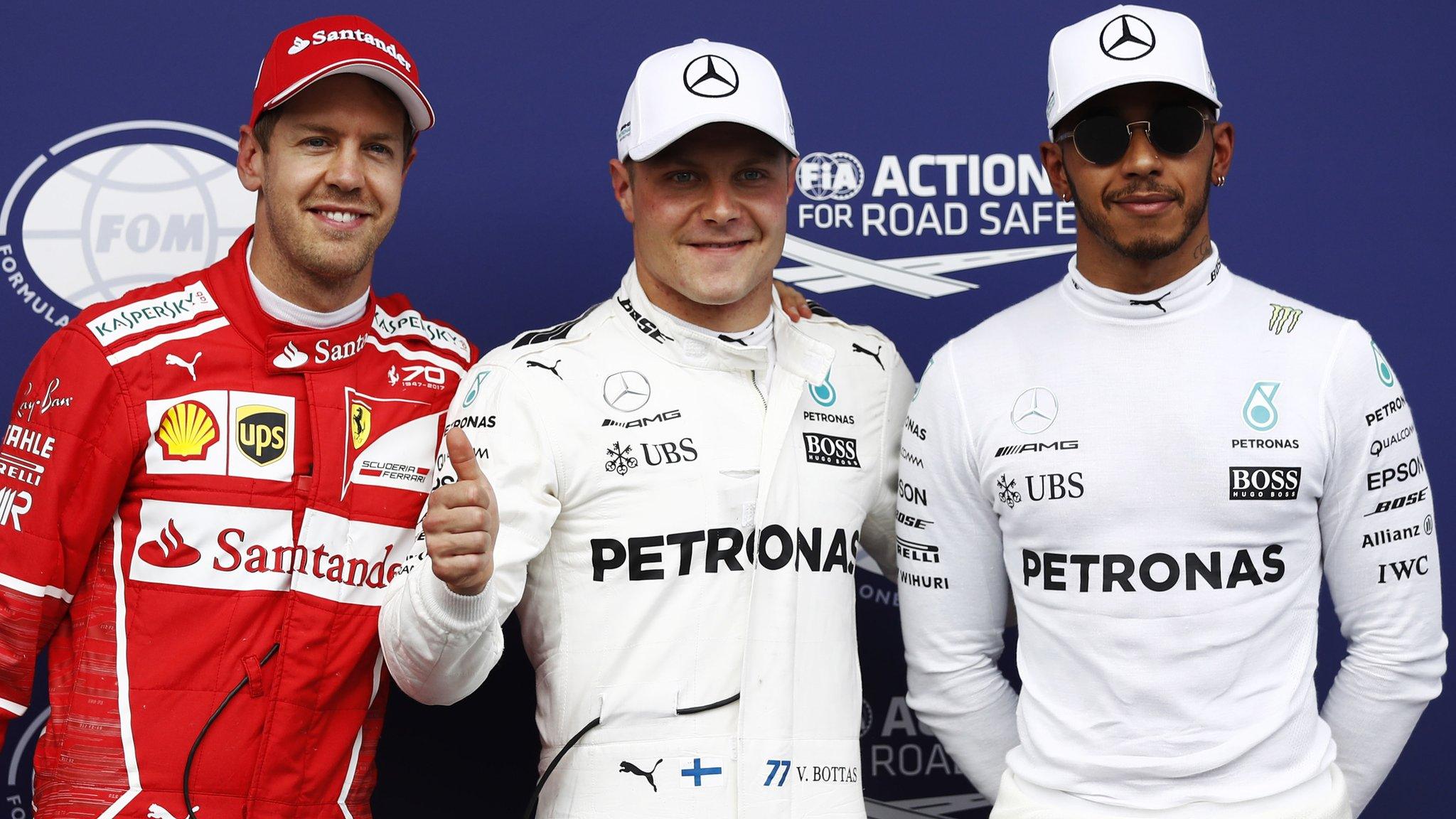
- Published8 July 2017
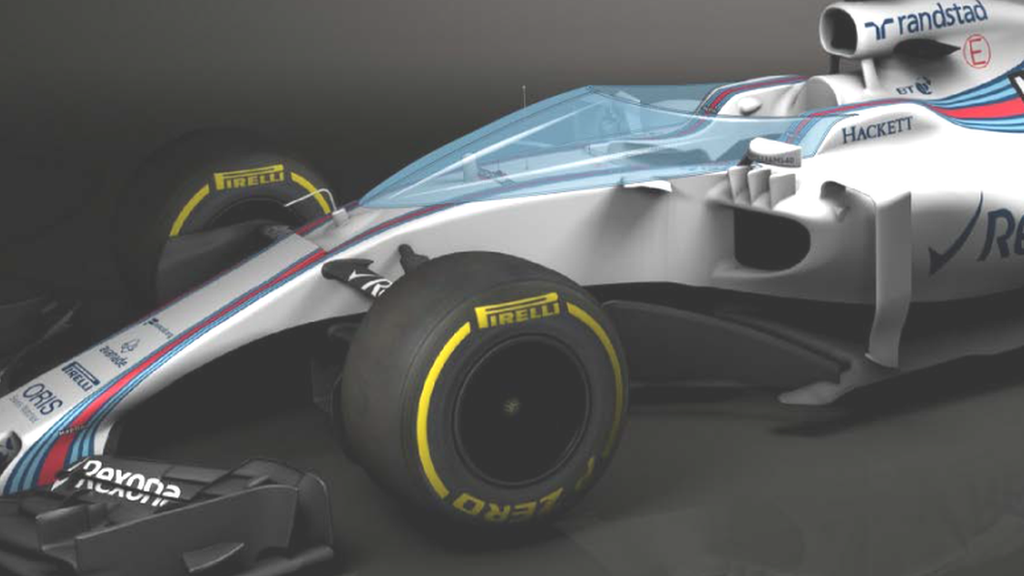
- Published6 July 2017
